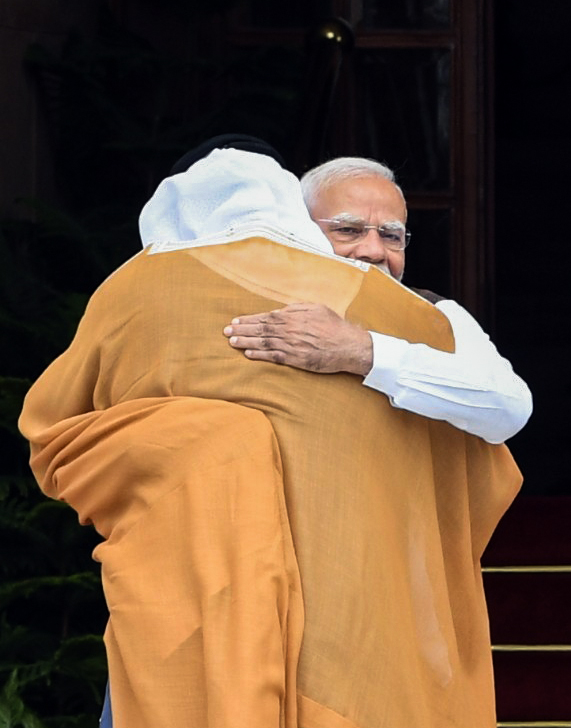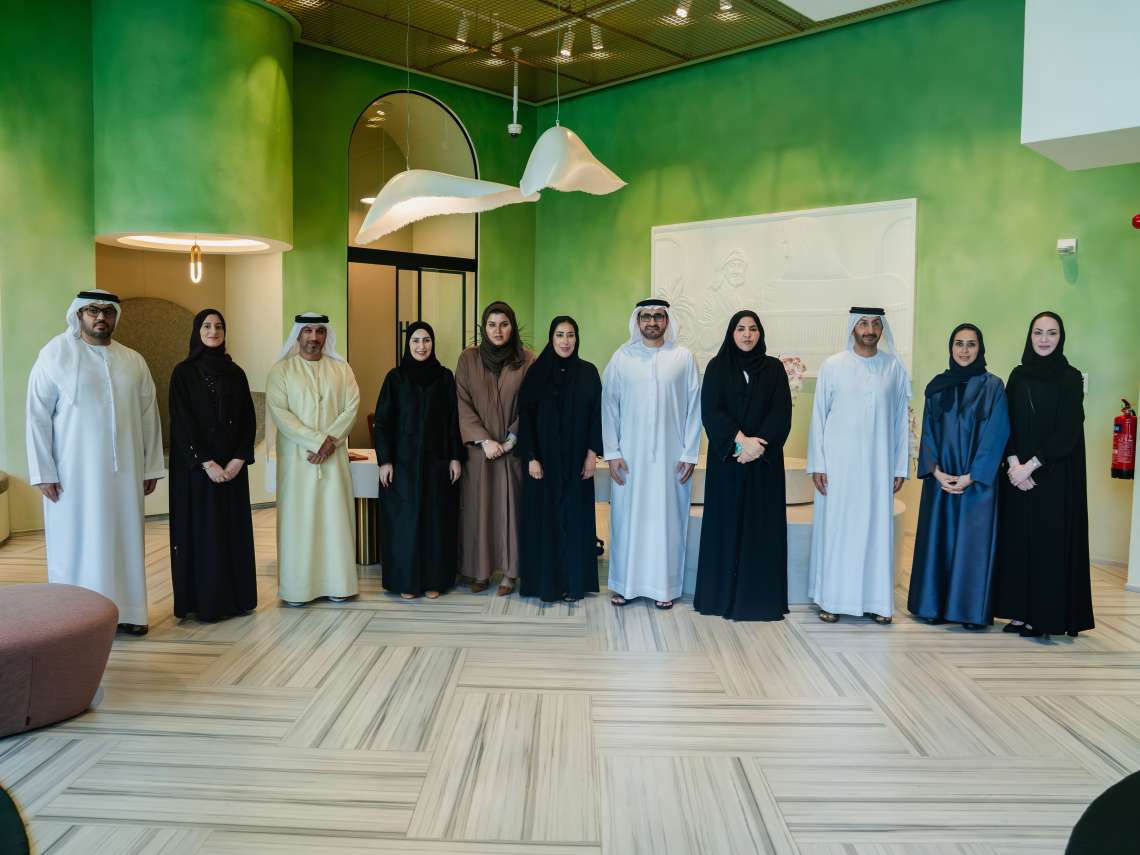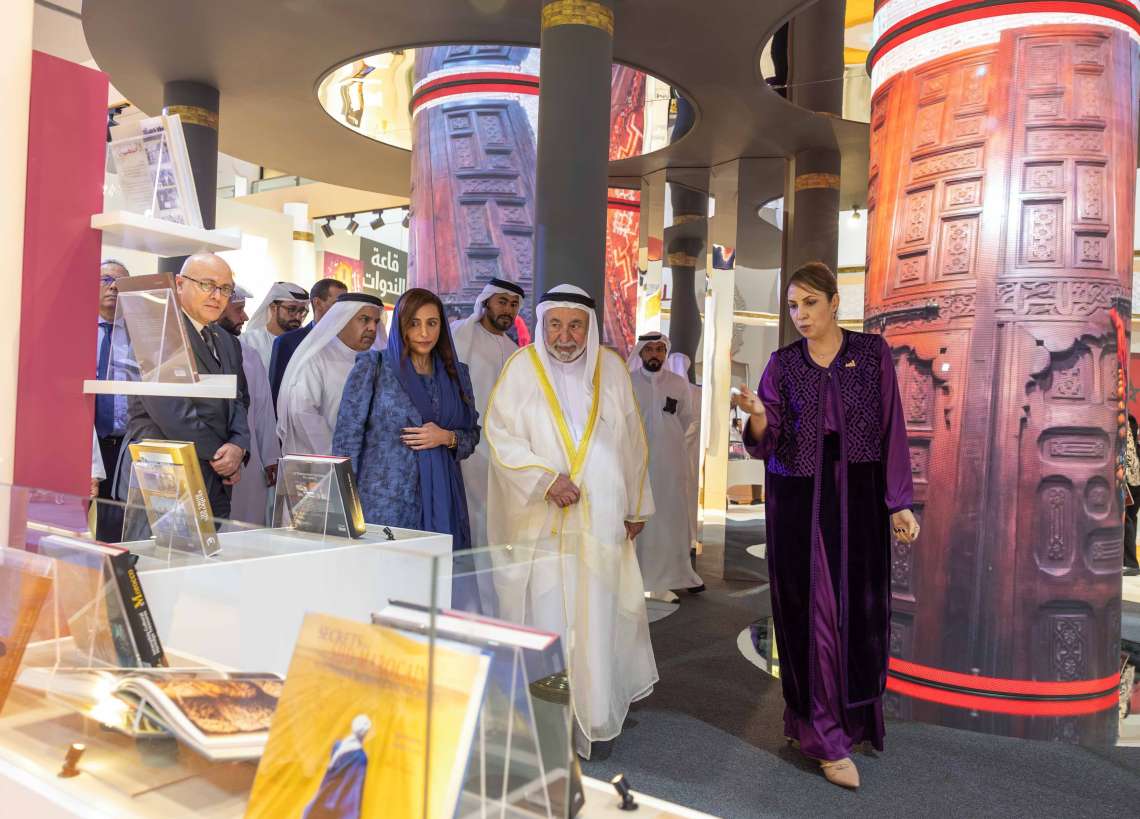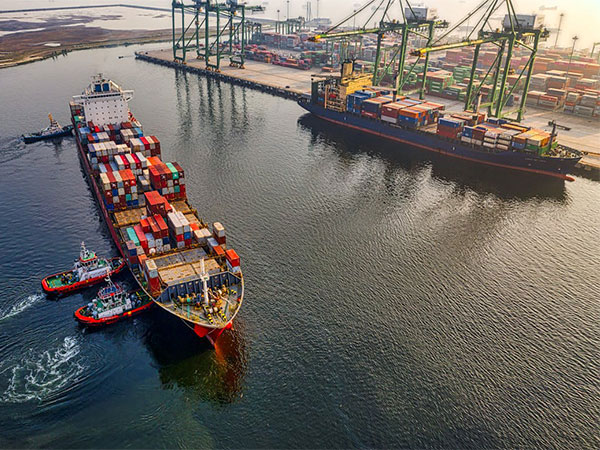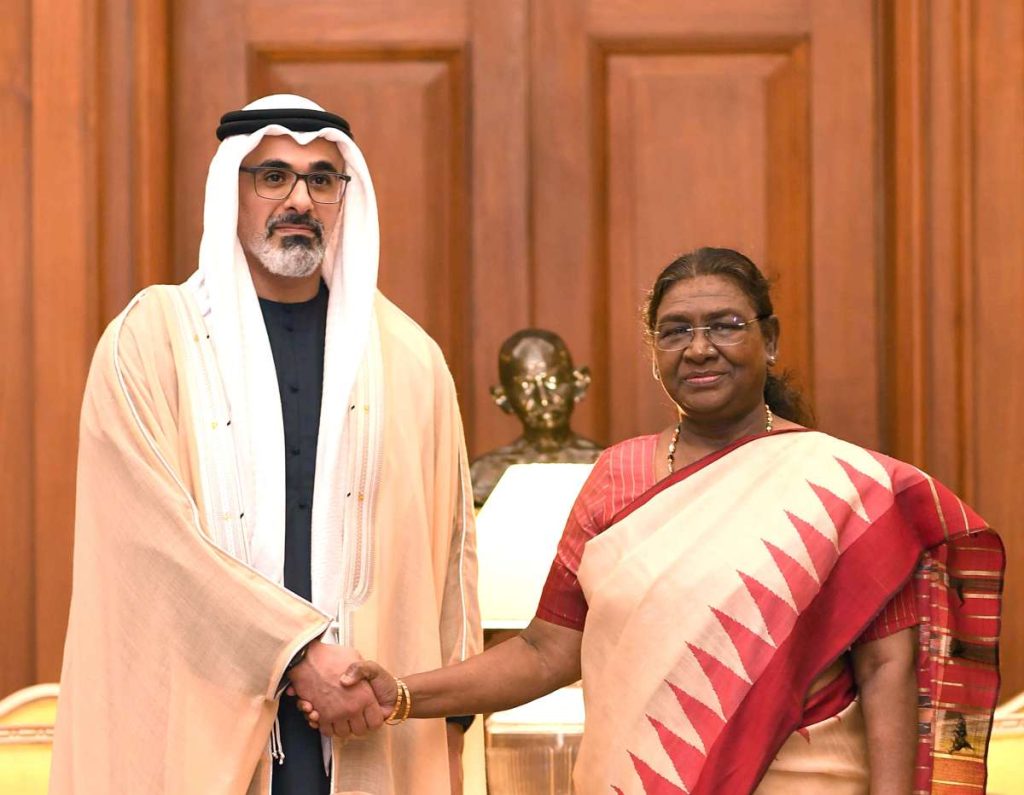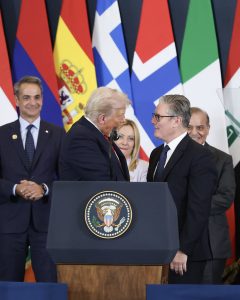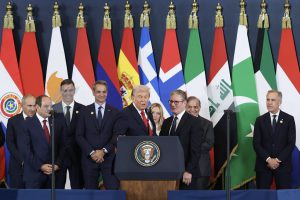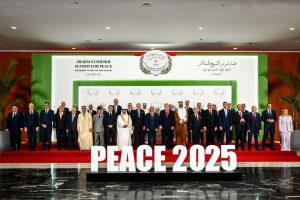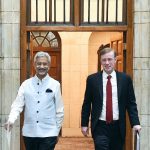The visit marks a major stride in the ongoing development of UAE-India ties, which have become an international model of constructive cooperation….reports Asian Lite News
The official visit of H.H. Sheikh Khaled bin Mohamed bin Zayed Al Nahyan, Crown Prince of Abu Dhabi, to the Republic of India highlights the deep-rooted and longstanding strategic and historic relations between the two countries.
The visit marks a major stride in the ongoing development of UAE-India ties, which have become an international model of constructive cooperation, particularly in areas, such as economic and sustainable development, investment, trade, climate action, and promoting global stability and peace.
Sheikh Khaled today met Prime Minister Narendra Modi at Hyderabad House in Delhi. Ministry of External Affairs official spokesperson Randhir Jaiswal stated that the two leaders held discussions on entire spectrum of ties between India and UAE.
Union Minister of Petroleum and Natural Gas, Hardeep Singh Puri, Union Minister of Commerce and Industry, Piyush Goyal, National Security Advisor Ajit Doval and other officials were present in the meeting.
PM Modi welcomed Sheikh Khaled Bin Mohamed Bin Zayed Al Nahyan and the two leaders greeted each other with a warm hug. The two leaders shook hands and interacted with each other before proceeding to hold the meeting.
During his visit to India, he is scheduled to call on President Droupadi Murmu. He will also visit Rajghat to pay tribute to Mahatma Gandhi.
On September 10, the Abu Dhabi Crown Prince will visit Mumbai to participate in a Business Forum, in which business leaders from both countries will participate.
The UAE-India relations draw strength and momentum from a long history of bilateral meetings between the leaders of both nations, beginning in January 1975 when the UAE’s Founding Father, the late Sheikh Zayed bin Sultan Al Nahyan, made a historic visit to India.
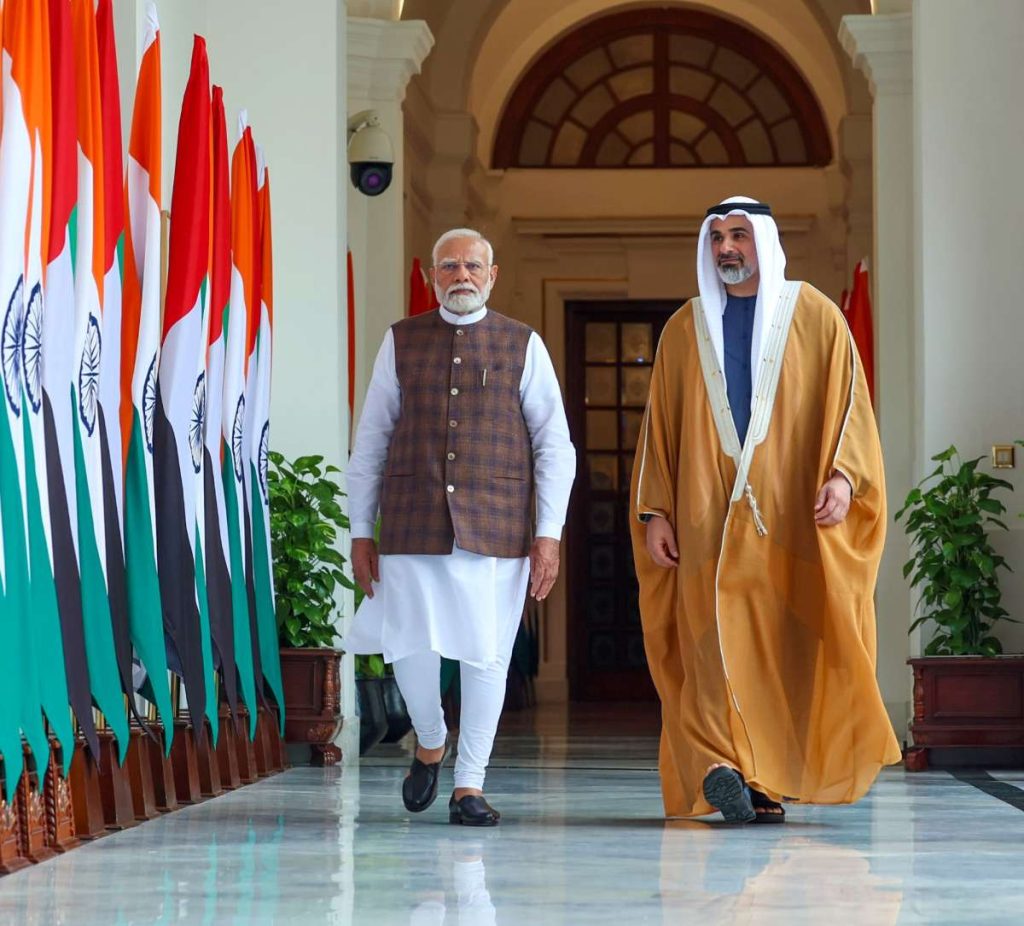
During this visit, he met with the then-President of India, Fakhruddin Ali Ahmed, and the then-Prime Minister, Indira Gandhi. The visit saw the signing of the Cultural Agreement between the UAE and the Republic of India, which serves as the primary framework for strengthening cultural ties between their peoples.
Sheikh Zayed also visited India in April 1992, during which the bilateral agreement to avoid double taxation on income and capital was signed between the two countries.
The visit of President His Highness Sheikh Mohamed bin Zayed Al Nahyan to India in January 2017, marked a turning point in bilateral relations, with the signing of the Comprehensive Strategic Partnership Agreement, along with 13 other agreements and memoranda of understanding in various fields.
In return, Narendra Modi, Prime Minister of India, made his first visit to the UAE in August 2015, followed by six more visits in February 2018, August 2019, June 2022, July 2023, December 2023, and February 2024.
UAE-India ties reached new heights on 18th February 2022, with the launch of a Joint Vision Statement during a virtual meeting attended by President His Highness Sheikh Mohamed bin Zayed Al Nahyan and Prime Minister Narendra Modi.
The two sides agreed to enhance their comprehensive strategic partnership, focusing on key areas such as the economy, culture, energy, climate action, renewable energy, technology and skills, food security and health, education, international cooperation, and defence and security.
Additionally, the UAE-India Comprehensive Economic Partnership Agreement (CEPA) was signed, seeking to bolster investment and trade flows based on reduced tariffs and greater regulatory efficiency. The CEPA stands to boost bilateral non-oil trade to US$100 billion by 2030.
By 2024, the UAE and India had made significant progress in maintaining their strong ties, holding 14 rounds of their Joint Committee, the most recent of which took place on 1st September 2022 in Abu Dhabi.
Boosting political ties is a key focus for both nations, which have maintained diplomatic relations since 1972. Since then, both sides have made significant and tangible efforts to strengthen bilateral relations, resulting in the signing of over 96 bilateral agreements and memoranda of understanding across various fields.
The UAE and India support one another across international forums and work to enhance cooperation on numerous global issues such as climate change, sustainable development, and world peace.
Total non-oil trade between the two countries rose by 3.94 percent from US$51.4 billion in 2022 to $53.4 billion in 2023.
The UAE and the Republic of India also share deep-rooted cultural ties, strengthened by the bilateral Cultural Agreement signed in 1975. Since then, a vast range of joint cultural and artistic events and activities have been organised. In March 2019, the Zayed-Gandhi Digital Museum was inaugurated at Manarat Al Saadiyat in Abu Dhabi, in tribute to the UAE’s Founding Father, the late Sheikh Zayed bin Sultan Al Nahyan, and the late Indian leader Mahatma Gandhi.
ALSO READ: Bangladesh has no plan to change national anthem: Religious advisor

